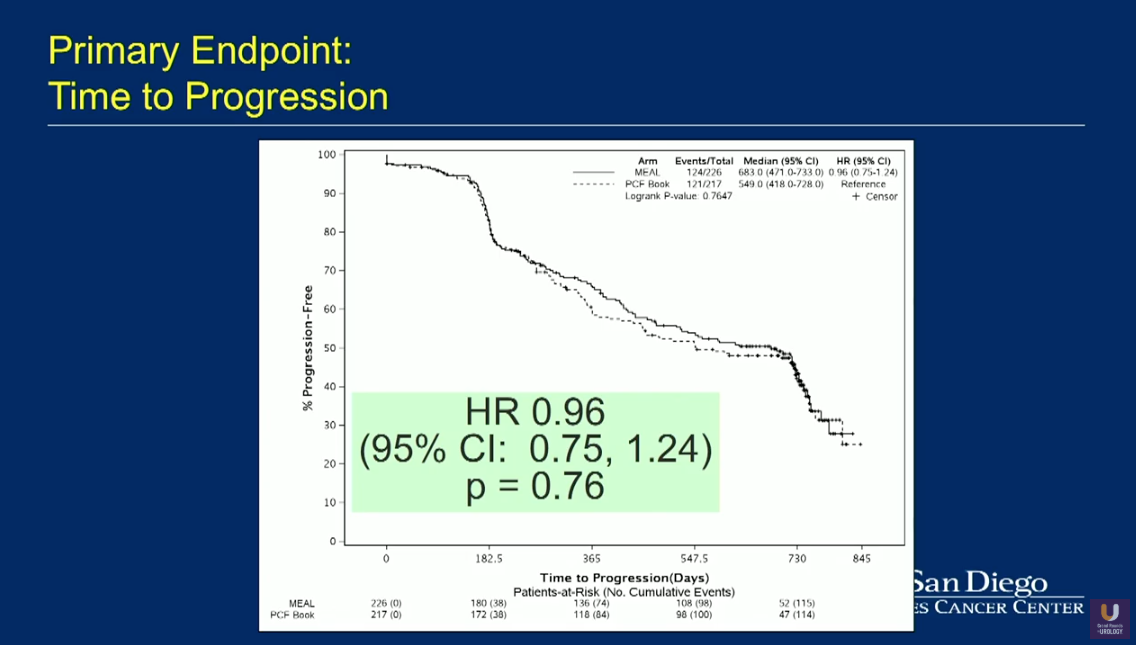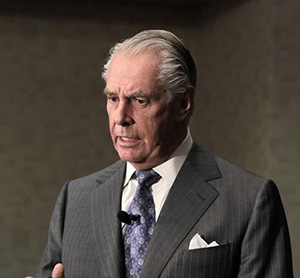J. Kellogg Parsons, MD, MHS, FACS, presented “Diet and Prostate Cancer – Now What?” during the 29th Annual International Prostate Cancer Update on January 25, 2019 in Beaver Creek, Colorado.
How to cite: Parsons, J. Kellogg. “Diet and Prostate Cancer – Now What?” January 25, 2019. Accessed Apr 2024. https://dev.grandroundsinurology.com/diet-and-prostate-cancer-now-what/
Diet and Prostate Cancer – Now What? – Summary:
J. Kellogg Parsons, MD, MHS, FACS, reviews the Men’s Eating and Living (MEAL) study, a randomized, phase III clinical trial testing diet intervention in prostate cancer patients under active surveillance. He describes the trial methodology and design, as well as clinical progression and quality of life outcomes.
Abstract:
In the past, only low-level evidence was available regarding diet and prostate cancer. To address the lack of robust data in this area, the MEAL study, a randomized, phase III clinical trial, investigated the efficacy of diet intervention in prostate cancer patients under active surveillance.
The study utilized a scientifically designed, validated behavior change with the theory of self-efficacy in the intervention arm with the goal of increasing patients’ intake of vegetables, specifically raw carotenoids from tomatoes and carrots, to seven or more servings a day. Importantly, this intervention removes economic and practical burdens from patients. It is also is scalable to large populations.
The primary endpoint was a composite of clinical progression, defined as either PSA levels increasing to 10 ng/mL or above, a PSA doubling time (PSADT) of less than 3 years, or pathological progression on follow-up biopsy.
At 12 and 24 months, the intervention group experienced significant increases to vegetable intake as opposed to the control condition group. Corroborating this, blood carotenoid levels significantly increased in the intervention arm at 12 months. Conversely, fat intake decreased at 12 and 24 months.
Despite the changes in diet, primary outcomes showed no significant effect on shorter-term clinical progression. Nor was there a significant observed difference in quality of life. Long-term effects are unclear.
However, this study shows that lifestyle changes in men with prostate cancer is feasible. Possibly, investigation of this intervention in a population of metastatic patients could yield different results. Further lifestyle intervention studies could include the introduction of intense exercise in patients. Ultimately, because there is no hard evidence to support it, physicians should not tell their patients that changing their diet will treat prostate cancer.
About the International Prostate Cancer Update
The International Prostate Cancer Update (IPCU) is an annual, multi-day CME conference focused on prostate cancer treatment updates. The conference’s faculty consists of international experts, and the event caters to urologists, medical oncologists, radiation oncologists, and other healthcare professionals. Topics encompass prostate cancer management, from diagnosis to treating advanced and metastatic disease. Dr. Parsons presented this lecture during the 29th IPCU in 2019. Please visit this page in order to learn more about future IPCU meetings.



